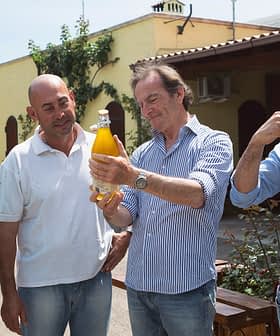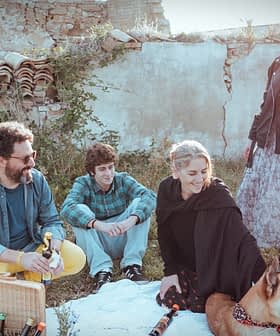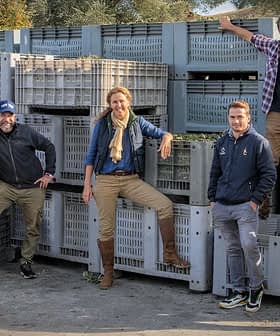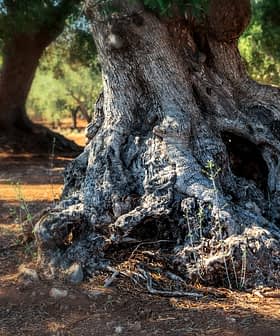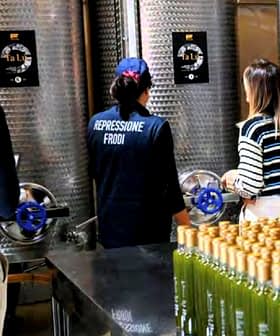Olive Oil Production Continues at Historic Home of Emperor Hadrian
The annual production of centuries and millennia-old olive trees promotes Villa Adriana’s historical and cultural importance to Italy’s capital region.
Olea Hadriani, a special extra virgin olive oil produced from olive trees in the Villa Adriana archaeological area near Rome, was included in the PGI Olio di Roma label last year as part of a partnership between Villae, Coldiretti Lazio, and Unaprol to protect and add value to the historic olive grove. The estate, built by Roman emperor Hadrian in the 2nd century AD and declared a UNESCO World Heritage Site in 1999, contains centuries-old olive trees of rare varieties, with the collaboration aiming to combine history and innovation while promoting the quality of extra virgin olive oil in the tourism sector.
The extra virgin olive oil known as Olea Hadriani (Latin for Hadrian’s Oil) has long been produced from the olive trees spread over the Villa Adriana archaeological area in Tivoli, near Rome. Last year, the oil was included in the PGI Olio di Roma label.
This year’s production of Olea Hadriani results from a partnership between Villae, the institute that consists of the complexes of Villa Adriana and neighboring Villa D’Este, Coldiretti Lazio and Unaprol, the Italian association of olive oil producers.
Our collaboration with Villae for the valorization of the historic olive grove represents the perfect combination of history and innovation.
The partnership’s goal is to protect and add value to the olive grove located in the 120-hectare estate built in the 2nd century AD by the Roman emperor Hadrian.
“I felt responsible for sustaining and increasing the beauty of the world,” Hadrian is quoted as saying in Marguerite Yourcenar’s 1951 historic novel Memoirs of Hadrian, which significantly contributed to making him one of the most influential characters of Roman history.
See Also:Sicily’s Monumental Olive Trees Provide Window Into Island’s HistoryHis fame was further bolstered by the long period of peace in the empire during his reign from 117 to 138 AD.
“The protection of this historical, artistic and archaeological heritage has major implications of environmental, social, cultural and economic nature,” said Andrea Bruciati, the director of Villae. He also emphasized the importance of safeguarding the historic olive tree patrimony.
Declared a UNESCO World Heritage Site in 1999, Villa Adriana is considered a “masterpiece that uniquely brings together the highest forms of expression of the material cultures of the ancient Mediterranean world.”
Combining Egyptian, Greek and Roman architectural elements, the majestic property includes buildings, pools and thermal baths separated by gardens and orchards that contain a wealth of biodiversity.
Seven olive varieties, some of which are rare ecotypes, are found on the estate, where 3,500 centuries-old trees are incorporated into the remains, creating a unique landscape.
While many trees are from the 18th century, the most ancient one dates back to the 13th century. Known as Albero Bello, the tree is considered the patriarch of Villa Adriana. Due to its vast dimensions and plentiful production, it was possible to bottle an exclusive monovarietal obtained from its fruits.
“Our collaboration with Villae for the valorization of the historic olive grove represents the perfect combination of history and innovation,” said David Granieri, the president of Unaprol and national vice president of Coldiretti.
“The mix of food, tourism and culture remains unbeatable. As the concept of quality grows, extra virgin olive oil is increasingly becoming an attractive element in the tourism sector,” he concluded.
Share this article


